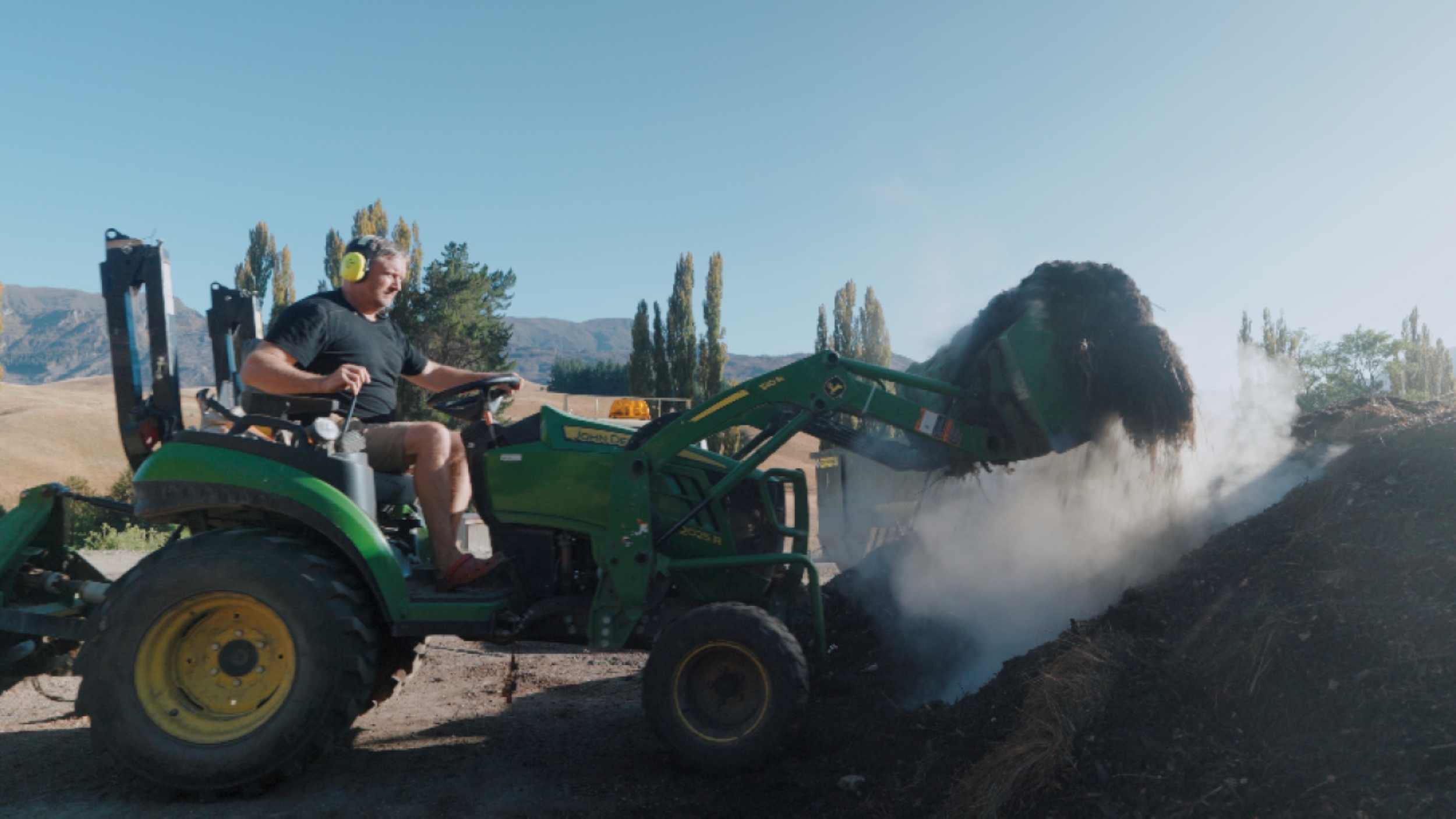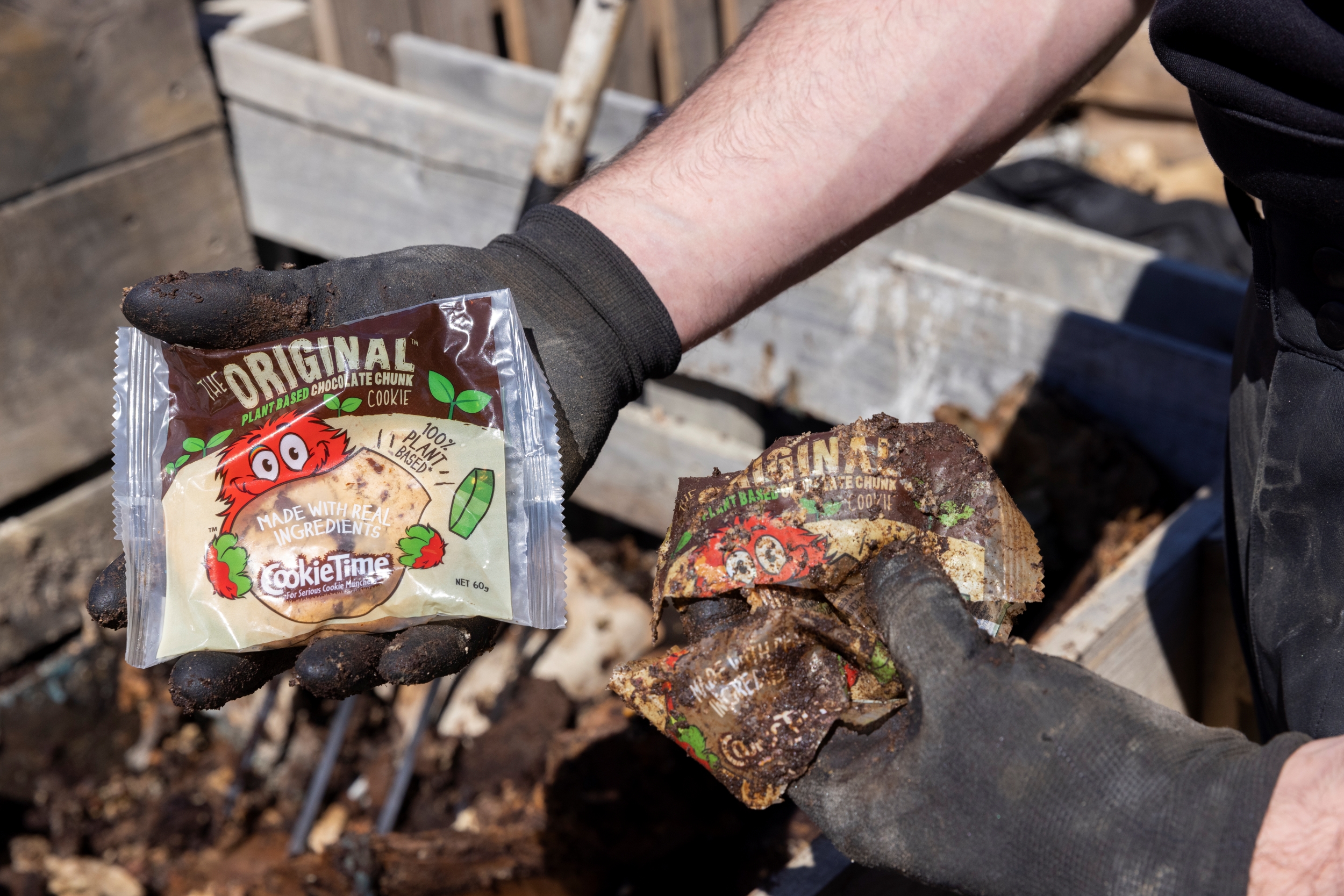Circular solutions and waste plans support the district’s Carbon Zero by 2030 goal.
Reducing business waste is a crucial step in creating a more regenerative visitor economy in Queenstown Lakes. Local councils, regional tourism organisations, and industry leaders are working together to understand waste streams, support businesses, and shift supply chains toward more sustainable practices that strengthen both the community and the environment.
A coordinated effort across the district
The visitor economy generates a variety of waste streams, particularly in food, beverage, and accommodation sectors. To address this, key stakeholders and industry leaders are collaborating on a district-wide initiative designed to reduce waste across the food and beverage industry in the district by engaging closed loop, localised procurement systems. Through a structured, multi-phase approach, the project identifies waste reduction opportunities, pilots innovative solutions, and scales best practice across the district.
This shared approach ensures that waste reduction isn’t seen as an isolated project but as part of a long-term shift in how the region operates. By engaging and collaborating with suppliers, local organisations and businesses, the district is creating a path that other destinations can learn from.

Supporting businesses to make change
One of the most important aspects of this work is supporting local businesses to take practical steps. With the help of community partners like Wastebusters, operators are beginning to develop Waste Minimisation and Management Plans (WMMPs). These plans highlight opportunities to cut costs, streamline processes, reduce waste and carbon emissions, and respond to growing visitor expectations for low-waste destinations.
Workshops and peer-to-peer events are also helping businesses learn directly from local examples - from hotels championing composting systems to cafés exploring SUC-free (single-use cup free). Toolkits and resources are being developed so that businesses of all sizes can take part, whether through simple on-site changes or by engaging their suppliers more deeply.

Building knowledge and measuring impact
Alongside practical trials, efforts are underway to build a clearer picture of tourism’s contribution to landfill. Regional tourism organisations and Queenstown Lakes District Council are reviewing data sources and establishing a methodology to track the visitor economy’s waste footprint. This is vital for measuring progress and ensuring accountability.
By linking waste reduction to emissions reduction, the district is addressing not just what goes to landfill, but also the broader carbon impact of waste and supply chains. This connects directly to the Carbon Zero by 2030 goal and aligns with the Destination Management Plan’s call for a zero environmental footprint.
Why this matters and what’s next
This work supports two key projects within the Destination Management Plan: Project 10 - Zero Environmental Footprint, which calls for all visitor economy businesses to have waste minimisation plans and Project 7 - Measuring Environmental Footprint, which will track the sector’s impact on waste to landfill.
Businesses and suppliers are encouraged to get involved by engaging with Member Capability workshops, exploring waste management and minimisation plans, and taking simple first steps like reviewing packaging choices and waste management processes.
If you have any questions, feedback, or comments, please reach out through the contact form.


